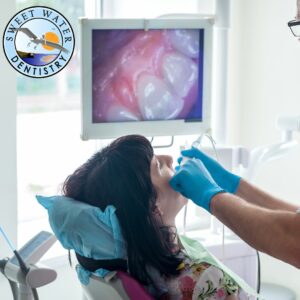Understanding the Benefits of Sedation Dentistry

Understanding Sedation Dentistry: A Comprehensive Guide
Sedation dentistry, often known as sleep dentistry, is a specialized field that focuses on helping patients overcome their fears and anxieties related to dental procedures. This approach involves the use of medication to help patients relax during dental visits, ensuring a stress-free experience.
The primary goal of sedation dentistry is to provide a calm and anxiety-free environment for patients who may otherwise avoid dental care due to fear. By utilizing different levels of sedation, dentists can tailor the treatment to meet the individual needs and comfort levels of each patient.
Patients who opt for sedation dentistry can benefit from a more pleasant and comfortable experience at the dentist’s office. The relaxed state induced by sedation helps patients remain still during procedures, allowing the dentist to work efficiently and effectively.
Understanding the various sedation options available is crucial for patients considering this approach. From minimal sedation that leaves you awake but relaxed to deep sedation where you are almost unconscious, the spectrum of sedation ensures that there is a suitable option for everyone.
Types of Sedation Used in Dentistry
In the field of dentistry, there are different types of sedation that can be used based on the patient’s anxiety level and the complexity of the procedure. The most common types include nitrous oxide, oral sedatives, IV sedation, and general anesthesia.
Nitrous oxide, also known as laughing gas, is a mild form of sedation that helps patients relax without putting them to sleep. It is often used for routine dental cleanings or simple procedures where the patient needs to remain conscious but calm.
Oral sedatives are taken in the form of a pill before the dental appointment to induce a sense of relaxation and reduce anxiety. This type of sedation is beneficial for patients with mild to moderate dental fear.
IV sedation involves administering sedatives directly into the bloodstream, leading to a quicker onset of relaxation. It is commonly used for patients undergoing more extensive treatments or those with severe dental phobia.
General anesthesia is the deepest form of sedation where the patient is unconscious throughout the procedure. This type of sedation is reserved for complex oral surgeries or patients with extreme dental anxiety who require extensive dental work.
Benefits of Sedation Dentistry for Patients
One of the key benefits of sedation dentistry is the ability to undergo dental procedures without experiencing fear or discomfort. Patients who choose sedation can relax throughout their treatment, making it easier for the dentist to perform the necessary procedures efficiently.
By opting for sedation, patients can also reduce the number of dental visits required to complete a treatment plan. With increased relaxation and comfort during appointments, more work can often be done in a single visit, saving time for both the patient and the dentist.
Sedation dentistry is particularly advantageous for individuals with a sensitive gag reflex, difficulty sitting still for long periods, or those requiring extensive dental work. The calming effects of sedation help manage these challenges, ensuring a smoother overall dental experience.
Overcoming Dental Anxiety with Sedation
Dental anxiety is a common issue that can prevent individuals from seeking necessary dental care. Sedation dentistry offers a solution by allowing patients to feel relaxed and at ease during their appointments, regardless of the complexity of the procedure.
Patients who have avoided the dentist for years due to fear can benefit greatly from the option of sedation. The ability to undergo treatment without fear can lead to improved oral health and overall well-being, restoring confidence in the dental chair.
Overcoming dental anxiety with sedation is a game-changer for many patients, making dental visits more manageable and less intimidating. By discussing sedation options with their dental provider, individuals can take a proactive step towards achieving optimal oral health without fear or stress.
Exploring the Advantages of Sedation Dentistry
In conclusion, sedation dentistry offers a solution for those with dental anxiety or phobia, allowing them to receive the dental care they need without stress or fear. It provides a safe and effective way to make dental visits more comfortable and manageable. If you have been avoiding the dentist due to fear or anxiety, consider discussing sedation options with your dental provider to experience a more relaxed and stress-free dental experience.
To schedule a consultation and learn more about your dental implant options, contact Sweet Water Dentistry today!
Visit us for expert care:
Sweet Water Dentistry
📍 5915 Sweetwater Cir, Fairhope, AL 36532
🌐 sweetwatersmile.com
📞 Call or Text: (251) 210-2773
Follow us on Facebook and Instagram for the latest updates and special offers!
